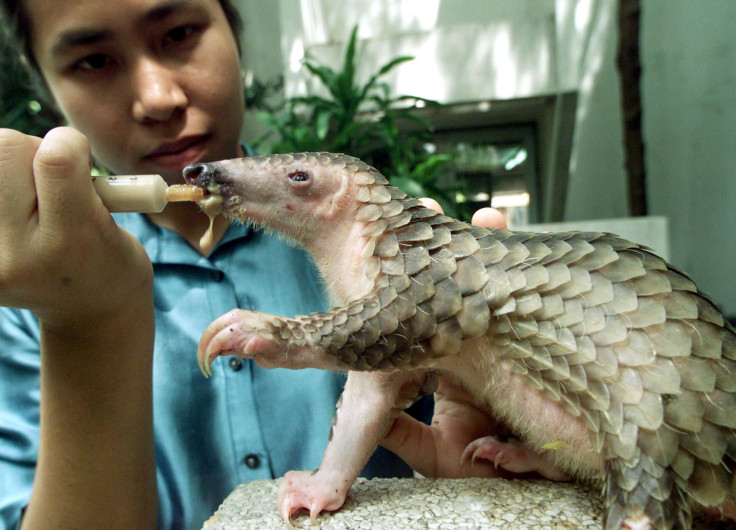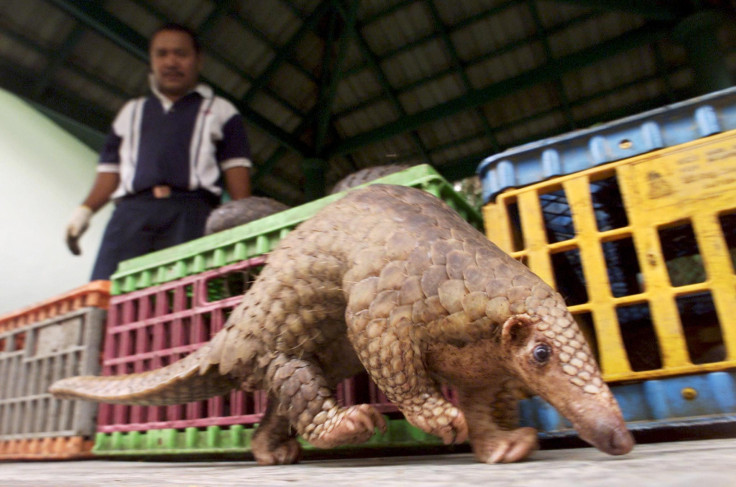World Pangolin Day: Simple Ways To Observe, Interesting Facts About The Scaly Mammals
World Pangolin Day, observed every third Saturday of February, is meant to celebrate these unique mammals and raise awareness about their plights.
Pangolins are, indeed, unique creatures. Covered with scales, these creatures can roll into a ball quite like armadillos whenever they feel threatened and use their long tongues to eat ants.
In fact, their name pangolin is derived from the Malay word "penggulung," which means "roller."
However, these incredible creatures are in need of help. Believed to be the "most trafficked non-human mammal" in the world, pangolins have been targeted by illegal trade because of their meat — which is considered a delicacy — as well as their scales that are used in traditional medicine, believed to be able to treat various conditions.
On World Pangolin Day, we raise awareness about these imperiled creatures and re-commit to the efforts to save them.
"Pangolin numbers are rapidly declining in Asia and Africa," noted World Pangolin Day.org. "Show your pangolin love and help raise awareness for pangolins around #worldpangolinday."
An adaptable, solitary, tree-climber of the night. Meet the Sunda Pangolin, a mainly arboreal species with an agile tail that makes it especially good at climbing through the tropical canopies of its...
There are various ways in which people can help the cause on World Pangolin Day or beyond. For instance, they can donate even a small amount to the organizations that protect and save pangolins or simply post about the creatures and their plight on social media.
There's even a World Pangolin Day playlist on Spotify with pangolin-themed songs or artists that people may enjoy. Who knows? This may inspire them to do their part in saving the creatures.
Some may educate their friends and family about pangolins, suggested World Pangolin Day.org, while others may even report to authorities if they know of anyone in possession of pangolins or see them for sale at markets or restaurants.

One may also observe the day by learning a bit more about the unique creatures. Let's look at some interesting pangolin facts. (Courtesy: National Geographic and National Geographic Kids, the World Wildlife Fund (WWF) and Earth.org)
- Pangolins are nocturnal and solitary animals. The only time that they get together with other pangolins is for mating or raising young ones as male pangolins sometimes stay in the den until they become independent.
- Pangolins are also harmless, and rather good swimmers.
- Although they look quite like armadillos and feed like ant-eaters, they're actually more related to cats, dogs and bears.
- What makes them particularly unique is that pangolins are the only mammals covered in scales.
- There are eight pangolin species, four of which live in Africa while the other four are found in Asia. They range from Vulnerable to Critically Endangered. All of them are protected under both national and international laws.
- Pangolin tongues are so long that they can sometimes be as long as their body "minus the tail." They use it well, too, as they can eat up to a whopping 70 million insects a year.
- When they eat, they close their nostrils and eyes to keep the insects out.
- Because of their appetite for ants and termites, pangolins play a key role in regulating insect populations in their ecosystems.
- Pangolins' unique scales are made of keratin, which is the same fibrous protein found in the hair and fingernails of humans. Although the pangolin scales have no proven medicinal value, they are still used in traditional medicine.
- Each year, tens of thousands of pangolins are said to be poached. In 2019, for instance, it is estimated that some 195,000 pangolins were poached for their scales alone. More than a million have reportedly been poached for commercial use in the past decade.
- China and Vietnam are said to be the main importers of pangolin. However, there is also a demand for pangolin skin in the Americas, to be used for items like belts, bags and boots.
- In 2020, China reportedly upgraded its protection of native pangolins and ceased allowing the use of their scales for traditional medicine.

© Copyright IBTimes 2024. All rights reserved.






















